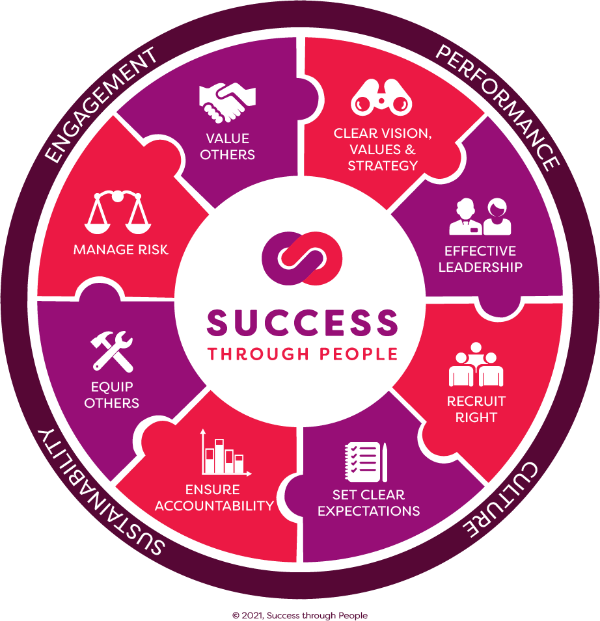“The only thing worse than being blind is having sight but no vision”
Helen Keller
The commencement of a new year is the perfect time to remind ourselves of the importance of every business/organisation having Clear Vision, Values and Strategy.
Indeed, it is in our experience so important that we refer to Clear Vision, Values and Strategy as one of the two “Do Not Pass Go, Do Not Collect $200” elements of our exclusive Success Through People© Model (the other “Do Not Pass Go…” element is Effective Leadership, just in case you are wondering!).

So What’s it all About?
Successful businesses have clear goals and ensure that the activity of all those involved in the business is aligned towards achieving them.
It’s critical for everyone in your team to know;
- who you are
- what you stand for, and
- how you intend to get there.
To maximise the contribution of your team, they need to;
- be and feel part of it
- be aware of and support your vision and strategy
- share and act in accordance with the values of the business, and
- understand the important part each person plays in achieving the goals of the business.
The Evidence:
And there’s plenty of research around to support the view that Clear Vision, Values and Strategy are critically important. Indeed, a study by the Australian Securities and Investments Commission found that 42% of Australian Businesses that fail, fail in large part due to poor strategic management of the business.
Another study by Accenture found that employees that felt they were working in a business that didn’t have a strong sense of direction were much more likely to leave. In fact, it was one of the top three (3) factors in terms of employees making choices about staying or leaving their employer.
Tips:
If the vision, values and strategy in your business are not quite as clear as they could be, consider these tips:
- Engage with your team and other stakeholders to develop (or review) your vision, values and strategy
- Ensure your vision, values and strategy, and what they mean in terms of individual accountabilities, are communicated effectively (regularly and consistently)
- Regularly measure and communicate progress in terms of achieving your strategy
- Consistently reinforce your expectations in relation to the vision, values and strategy. For example, ensure that people are accountable for upholding the values of the business, and ensure decisions relating to recruitment, recognition and rewards are linked directly to the vision, values and strategy of the business.
Keen to see how your business/organisation is doing in terms of the Success Through People(c) Model? Take the free STP Scorecard and receive a comprehensive, personalised report with tips and tools to help you and your business achieve Success Through People.

